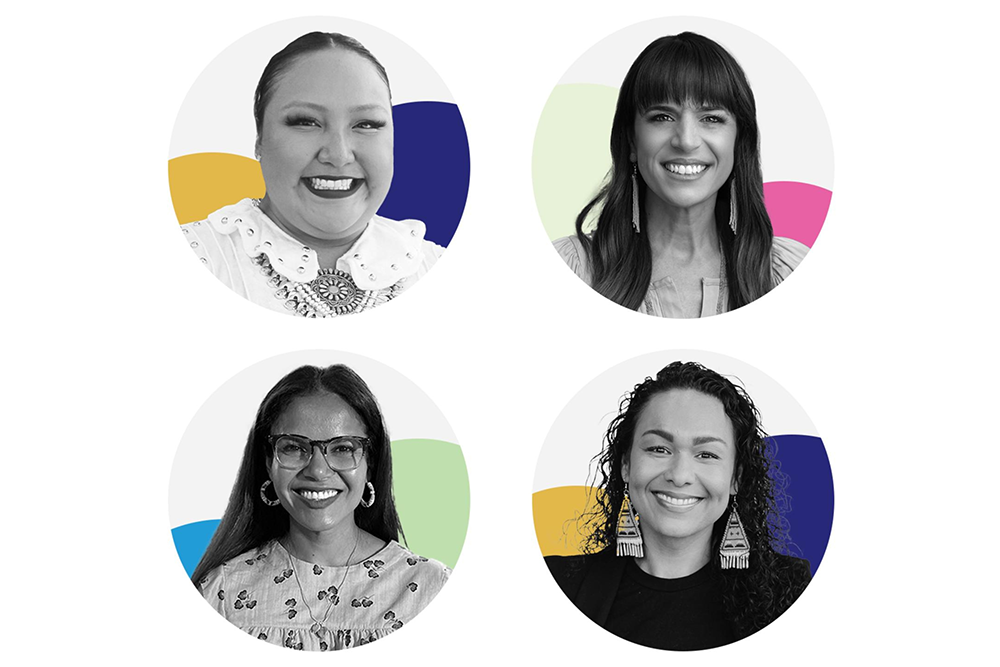
- Details
- By Native News Online Staff
The Obama Foundation has announced the first cohort of 100 emerging changemakers selected to participate in its Leaders USA program.
The Obama Foundation Leaders USA program is a six-month leadership program that seeks to inspire, empower, and connect emerging leaders across the country. The inaugural cohort is made up of people from every corner of the U.S who are impacting change across borders, sectors, and societal issues. These selected leaders represent 37 states, Washington D.C., American Samoa, Guam, and five tribal nations.
 Make A Monthly Donation Here
Make A Monthly Donation Here
Throughout the program participants will have the opportunity to engage with former Democratic President Barack Obama, leadership coaches, subject matter experts, and each other to deepen their leadership practice. Upon successful completion of the program, the inaugural cohort of United States Obama leaders will join the Obama Foundation Leadership Network.
The Obama Foundation Leaders USA program was launched in 2018. Among the 100 emerging changemakers, several changemakers from Native American communities were selected to participate in the program.
These leaders are already making waves and driving significant change within their communities and around Indian Country.
Christina Haswood, Kansas state Legislator, Kansas State House of Representatives House District 10):
Christina Haswood (Diné/Navajo) is a State Legislator for the Kansas State House of Representatives House District 10. She is the Ranking Minority Member on the Joint Committee on State and Tribal Relations. She is known for her Native American and public health policy expertise. Christina helped pass Kansas’ first Missing and Murdered Indigenous Peoples (MMIP) bill in 2021 and is an avid champion of reproductive rights. Christina is known for using social media in politics and for building the bench for young Kansans to be involved in state politics.
Jen Loren, Oklahoma (Senior Director, Cherokee Film):
Jen Loren is the executive producer and host of the Emmy-winning documentary series "Osiyo, Voices of the Cherokee People" and the senior director of Cherokee Film, a division of Cherokee Nation Businesses that is dedicated to increasing the presence of Native Americans in every level of the film and television industries while creating opportunities for economic development and jobs in the Cherokee Nation reservation. Jen leads Cherokee Film by setting the vision, strategy, and direction for the tribe’s efforts in film, television, video, and virtual production—in pursuit of its mission by and in helping to educate, prepare, and connect tribal citizens with great jobs. Jen is passionate about growing native representation across global media and helping develop Cherokee Nation as a hub for the film and television industry, especially as it relates to telling diverse stories.
Nikki Santos, District of Columbia (Executive Director, Center for Native American Youth, The Aspen Institute):
Nikki Santos (Coeur d'Alene Tribe) is the executive director of the Center for Native American Youth at the Aspen Institute, an organization with a vision for all Native American youth to lead full and healthy lives, be honored for the leaders they are, and have the resources and agency to create the world Native youth are worthy of and deserve. As executive director, Nikki works closely with the Board of Advisors, manages staff, and sets the vision, strategy, and priorities for the Center. Nikki oversees finances, manages the development of communications, advocacy, and programs, and is the lead in resource development, partnership development, and collaborative strategies. Nikki has worked on behalf of her people her whole life. Her biggest inspiration comes from her daughter, Aplnmarimn’tsu’tn (Carries the Medicine).
Tasha R. Fridia, South Dakota (National Director of Tribal Programs, Friends of the Children):
Tasha R. Fridia, Pejuta Cangleska Win (Sacred Medicine Circle Woman) is an enrolled member of the Wichita and Affiliated Tribes and is Kiowa, Caddo, and Hunka Oglala Lakota. She is the national director of Tribal Programs at Friends of the Children, an organization that strives for a future where one day, all children will have a long-term, consistent relationship with a caring adult who believes in them. Tasha leads the organization’s work in Indian Country, indigenizing the model and enhancing the two-generation approach through reclaiming tribal cultures and reconstituting extended kinship systems. Tasha is passionate about Indigenous culture as a protective factor that connects youth to their ancestors and their communities and also gives them the freedom to dream.
More Stories Like This
Native News Weekly (August 25, 2024): D.C. BriefsUS Presidents in Their Own Words Concerning American Indians
Native News Weekly (January 18, 2026): D.C. Briefs
Federal Judge Orders ICE to Halt Use of Pepper Spray, Arrests of Peaceful Protesters in Twin Cities
Tunica-Biloxi Cultural Leader John D. Barbry Walks On
Help us defend tribal sovereignty.
At Native News Online, our mission is rooted in telling the stories that strengthen sovereignty and uplift Indigenous voices — not just at year’s end, but every single day.
Because of your generosity last year, we were able to keep our reporters on the ground in tribal communities, at national gatherings and in the halls of Congress — covering the issues that matter most to Indian Country: sovereignty, culture, education, health and economic opportunity.
That support sustained us through a tough year in 2025. Now, as we look to the year ahead, we need your help right now to ensure warrior journalism remains strong — reporting that defends tribal sovereignty, amplifies Native truth, and holds power accountable.
 The stakes couldn't be higher. Your support keeps Native voices heard, Native stories told and Native sovereignty defended.
The stakes couldn't be higher. Your support keeps Native voices heard, Native stories told and Native sovereignty defended.
Stand with Warrior Journalism today.
Levi Rickert (Potawatomi), Editor & Publisher

